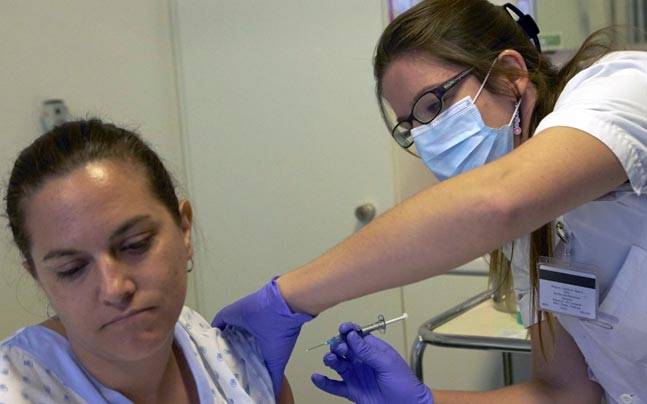Here’s a list of the essential tests that should be started in your 30s and continued through to your 50s.
Screening tests can catch a health condition even before it starts showing symptoms, helping you take preventive measures.
Here’s a list of the essential tests to be started in your 30s and continued through, to your 50s.
Although, remember that all lab reports need to be reviewed by a trained physician as, what may be normal for one person may not be for another– depending on their overall health condition.
In your 30s:
Complete Blood Count (CBC): It is used to diagnose anaemia, infections, certain types of cancer, and so on. It’s especially important for Indian women as we tend to suffer from iron deficiency anaemia and may require supplementation. If the CBC is okay, it may be repeated once a year.
Blood Pressure Test: A reading below 120/80 is ideal. If the reading is normal, get tested the next year.
Blood Sugar Test: Done after a 12-hour fasting period, this helps detect diabetes. A reading of < 99 is normal; between 100 and 110 indicates pre-diabetes and higher than 110 indicates diabetes. In cases of pre-diabetes and diabetes, an additional test, HbA1C, that indicates the average blood sugar levels over the previous 3 months is done. An annual testing is recommended if the reading is normal.
Lipid Profile: Considered an accurate indicator of your heart health, this blood test measures the total cholesterol, triglycerides, HDL and LDL levels. The LDL and triglycerides should ideally be < 130 and HDL > 60. Testing once in 2 years is recommended for people with normal readings. In case of obese patients and people with heart disease and/or diabetes, an annual testing may be recommended.
ECG Test: Recommended after age 35, an electrocardiogram (ECG) test is, checks for the risk of heart disease. If the report is normal, it can be repeated annually.
Liver Function Test: This is done annually to screen for liver conditions, such as alcohol-induced liver damage, fatty liver, Hepatitis C and B.
Urine Analysis: It checks for presence of proteins, sugar and blood (especially in smokers who are at high risk for bladder cancer) in the urine sample, which could indicate kidney disease, among other conditions. If the reports normal, get tested the next year.
Kidney Function Test: A high reading of serum creatinine may indicate impaired kidney function. Even though a reading of 0.3-1.2 is considered normal, the size of an individual also needs to be taken into account.
Thyroid Function Tests: These blood tests are important in detecting underactive (hypothyroidism) or overactive thyroid (hyperthyroidism). In case of normal findings, once-a-year testing is recommended.
Test For Vitamin D Deficiency: An extremely common condition, Vitamin D deficiency increases the risk of bone loss and osteoporosis in later years, among other things. A reading < 30 in the blood test indicates a deficiency.
Pap Smear Test (For Women): It can catch pre-cancerous changes in the cervix, and is recommended for every sexually-active woman after age 21. In their 30s, if 3 consecutive, yearly test results are normal, the test can be repeated every 3-5 years. Ideally, it should be combined with the HPV test.
Screening For STIs: If you have multiple sexual partners or are planning to conceive, check for sexually transmitted infections, like syphilis, gonorrhoea, HIV, Hepatitis B and C.
In your 40s: Continue with the tests started in your 30s. And introduce these new tests:
Test For Prostate Cancer (For Men): The Prostate-specific Antigen (PSA) blood test assesses the risk of prostate cancer. PSA level < 4 is normal, but a higher level doesn’t necessarily indicate cancer, so let the doc do the evaluation.
Mammogram (For Women): This breast cancer screening is recommended every two years. In case of any abnormal reports or high risk factors, your doctor may ask you to repeat the test more frequently.
Test For Calcium: This blood test measures bone metabolism. It’s especially important for women as post-menopause, they are at a high risk for developing osteoporosis.
Uric Acid Test: It’s a blood test to detect gout (painful swelling of toes and ankles). High levels of uric acid in the blood indicate gout.
Stool Occult Test: It tests for hidden blood in the sample. It’s important because it could mean bleeding in the abdomen, gut or rectum. The find may indicate further medical examination.
In your 50s: Continue with the screening from your 30s and 40s. There’s just one new test for you and your partner in this decade:
Colonoscopy: It helps detect colon cancer. The colonoscopy involves looking for polyps or lesions in the colon and rectum.The lesions are removed and biopsied during the procedure. Your doctor may suggest repeating the colonoscopy every 3-5 years to check for recurrences. If the results are normal, the test needs to be repeated every decade.
Read More: 18 essential medical tests to be started in your 30s and continued through to your 50s
Source: Indiatoday.intoday.in


